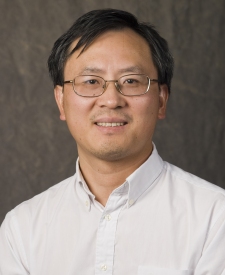
A University of Iowa engineering professor is investigating a new framework for diagnosis and prognosis of patients with Takotsubo using imaging readily available in clinical settings.
Takotsubo refers to a condition in which the heart is weakened as the result of severe emotional or physical stress, such as the loss of a loved one, and thus has been dubbed “broken-heart syndrome.”
Symptoms of Takotsubo are like those of a heart attack – chest pain, shortness of breath, and fatigue – and can be challenging for doctors to differentiate in real time.
Xiaodong Wu, a professor of electrical and computer engineering who joined Iowa in 2005, is leading a study intended to ease identification of Takotsubo and decision-making about treatment.
Wu, who studies machine learning, computer algorithms, and medical imaging, is the principal investigator of a four-year, $1.7 million grant from the National Institutes of Health. Wu is a faculty affiliate of the Iowa Technology Institute.
Research partners include Kan Liu, a cardiology professor at Washington University in St. Louis, and Grace Wang, associate professor of mathematics at California State University, Dominguez Hills.
The research team hopes to confirm their hypothesis that they can unlock insight into heart rhythms by applying advanced learning and computational analysis to existing tools and research.